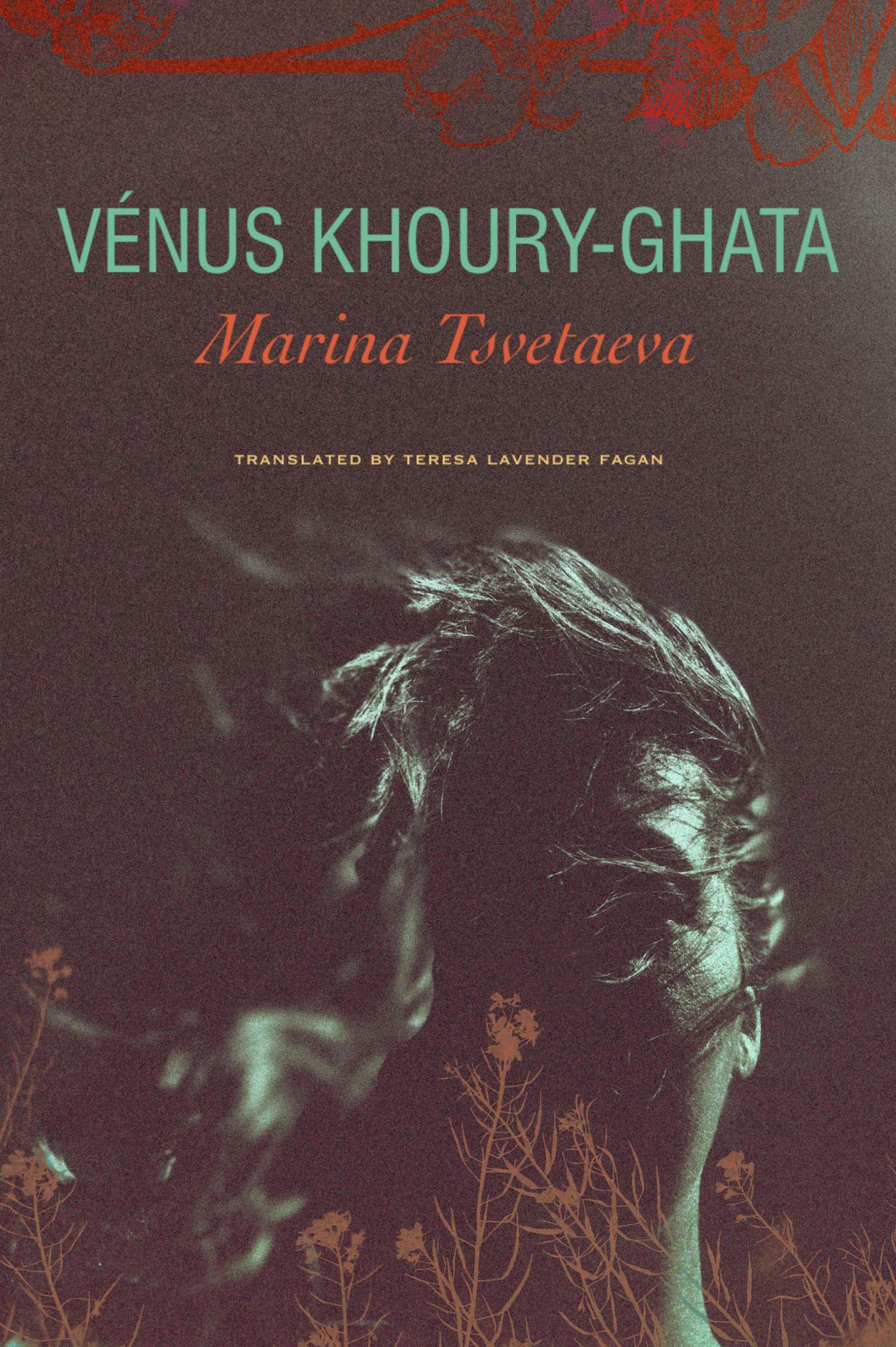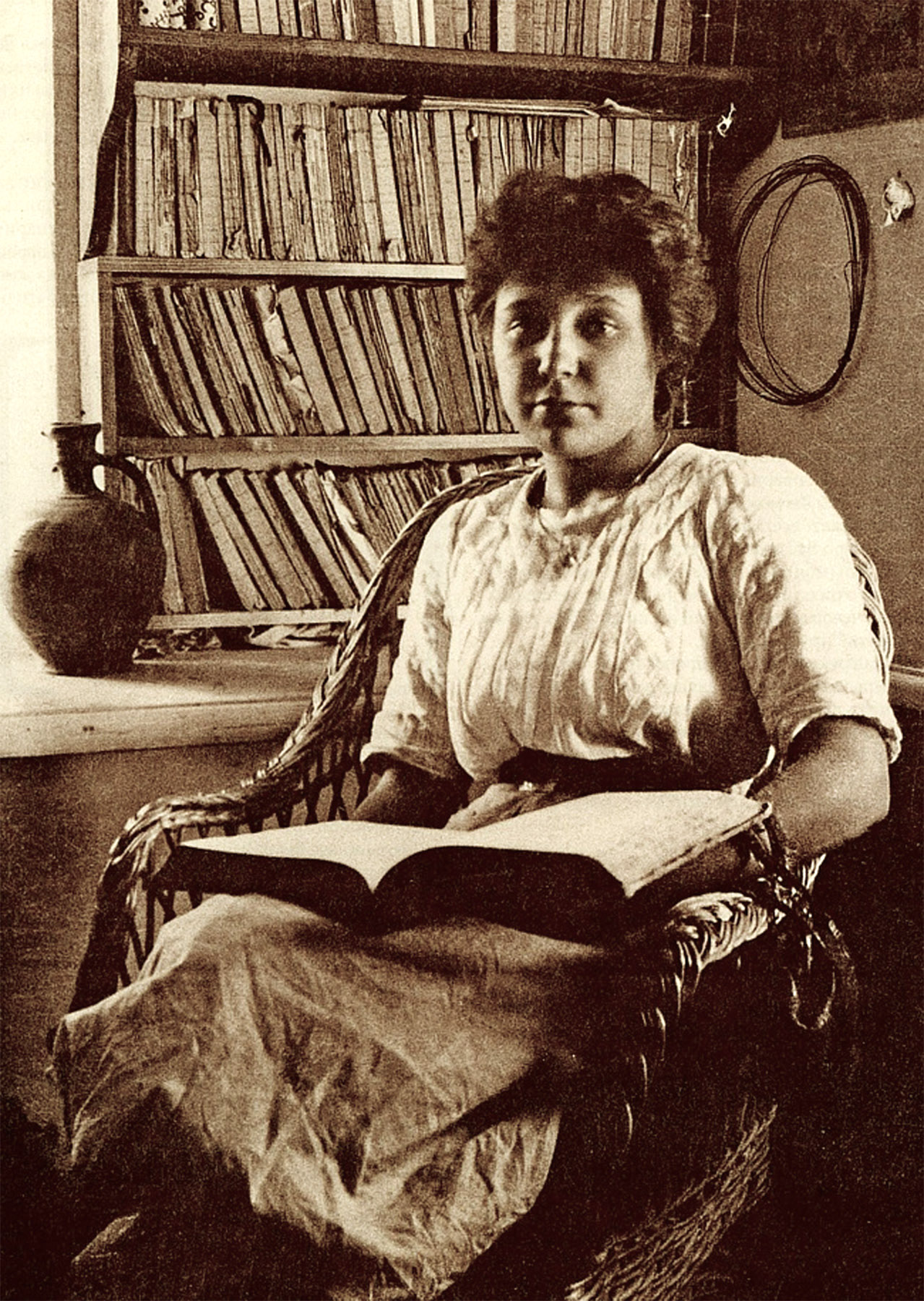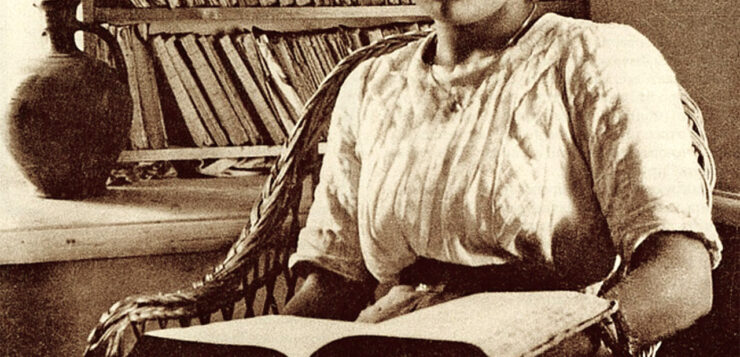 MARINA TSVETAEVA
MARINA TSVETAEVA
To Die in Yelabuga
by Vénus Khoury-Ghata
Translated by Teresa Lavender Fagan
Seagull Books. 140 pages, $21.
THE FIRST SENTENCE of Vénus Khoury-Ghata’s biographical novel reveals the book’s unorthodoxy. The use of the second person here and throughout suggests a tone of probing intimacy designed to offer insight into the thoughts and feelings of the subject, renowned Russian poet Marina Tsvetaeva. That the novel begins with the poet’s suicide echoes the novel’s subtitle and sets the tone for the narrative to come.
Readers expecting clear historical narrative with literary markers may be disappointed. A brief chronology is included at the end of the book, but readers may still need to consult other sources for clarity and context before diving in. The prose is occasionally florid: “Long the list of your passions, your infatuations, whether experienced or expressed in writing.” The translation is sometimes infelicitous: “That he kissed your hand ravaged by household chores raises you up in your own self esteem.” Several of Tsvetaeva’s actual poems are included, and it seems that the author intends the novel to be a poetic rendering in its own right.
The book discloses key events in Tsvetaeva’s private life that may have been mentioned in other accounts, but not thoroughly explored. One such event is the starvation of her daughter Irina during the Great Russian Famine of 1921. The intolerable circumstance of the death, for which the poet blames herself with some justification, is recounted in the first pages, reappearing in the poet’s thoughts throughout the rest of the narrative. Short chapters propel the story forward with a compelling, relentless momentum, pointing to the ruthless operation of the Stalinist state following Tsvetaeva’s family’s ill-fated decision to return from exile.

Along the way, the novel recounts the poet’s early life as the daughter of the founder of the Museum of Fine Arts in Moscow, a credential that would become a liability after the Bolshevik Revolution, her mother’s death, and the poet’s marriage at nineteen to Sergei Efron, who would later enlist in the White Army during the Russian Civil War.
The personal circumstances of prominent literary figures of the early 20th century make appearances. Among them is writer Anna Akhmatova, who stopped writing following the execution of her husband. Tsvetaeva’s ex-lover, lesbian poet Sophia Parnok, is discussed, primarily as an object of recrimination. Poet-playwright Vladimir Mayakovsky’s suicide is often invoked among the litany of former friends and colleagues who experienced a violent fate. Austrian poet Rainer Marie Rilke and Russian writer Boris Pasternak are also mentioned, each having played an important role toward the end of Tsvetaeva’s life. A point of confusion in the book occurs when the narrator describes Rilke as “The only one who responded to your call the day before your suicide,” when of course she means Pasternak, Rilke having died fifteen years earlier. In this instance, elusive language runs amok.
To be sure, the difficulties of Marina Tsvetaeva’s life were extreme: living through the Famine, the Russian Revolution (with a husband on the losing side), exile, poverty, and disfavor. Yet the portrait that emerges is anything but flattering. Khoury-Ghata gives us a writer issuing page after page of grievance over people who have snubbed her and lovers who have rejected her. Her cruelty to her surviving daughter Alya is encapsulated when, in a moment of clarity, Tsvetaeva confesses: “Your daughter could have been a great scholar if you had not relegated her to domestic chores under the pretext that you had to write.” In a shocking display of callousness and neglect, she reports that she pulled the eleven-year-old Alya out of a boarding school where she was happy, so that the child could perform household duties at home. Another instance of cringe-worthy behavior occurs when Khoury-Ghata’s Tsvetaeva proposes to name their son after one of her male lovers, against her devoted husband’s wishes.
A moment of insight summarizes much of the narrative, as the Tsvetaeva figure reflects on herself, to herself: “You throw yourself headlong into people, drown them under the waves of your feelings, demand that they listen. They must share your unhappiness, accept your justifications. Declare you innocent.” Fittingly, the poet once again rejects agency by speculating that this process might be due to the early loss of her mother.
If Vénus Khoury-Ghata intended her biographical novel to be poetic, she has succeeded in that this book conveys a strong feeling of the pain and hardship that her subject endured. If the author wanted to evoke sympathy for Tsvetaeva, the novel falls short. Tsvetaeva observes accurately at one point: “People admire your writing, not you.” A second-person narrative certainly fosters a sense of close familiarity. Unfortunately, in this case, even though it is fiction, readers may feel they have heard too much.
Anne Charles cohosts the cable-access show All Things LGBTQ with her partner in Vermont.






